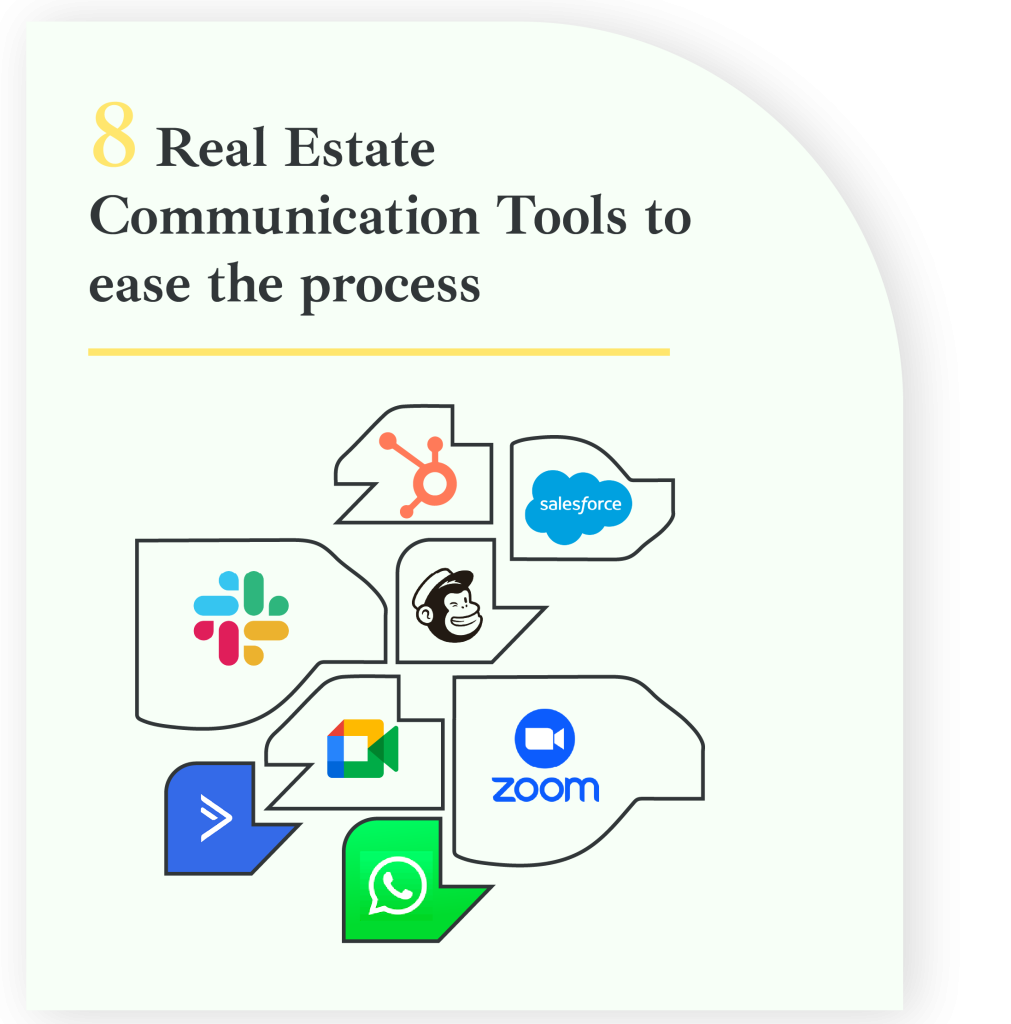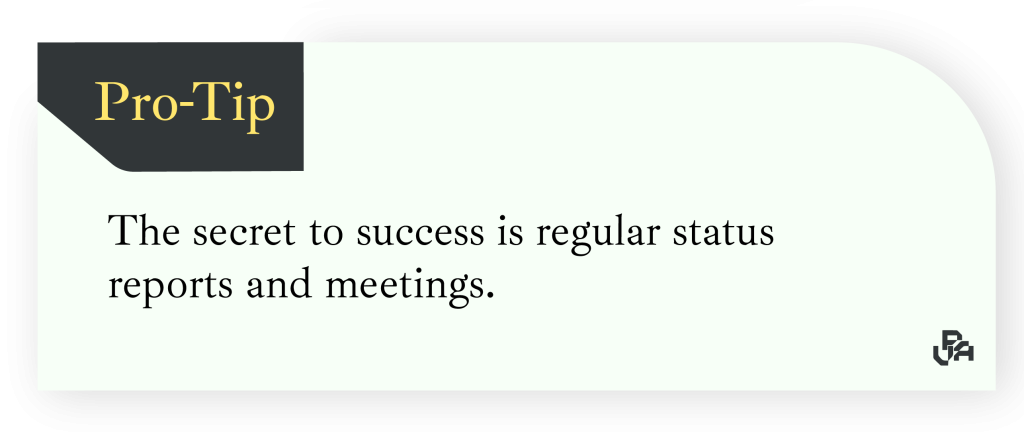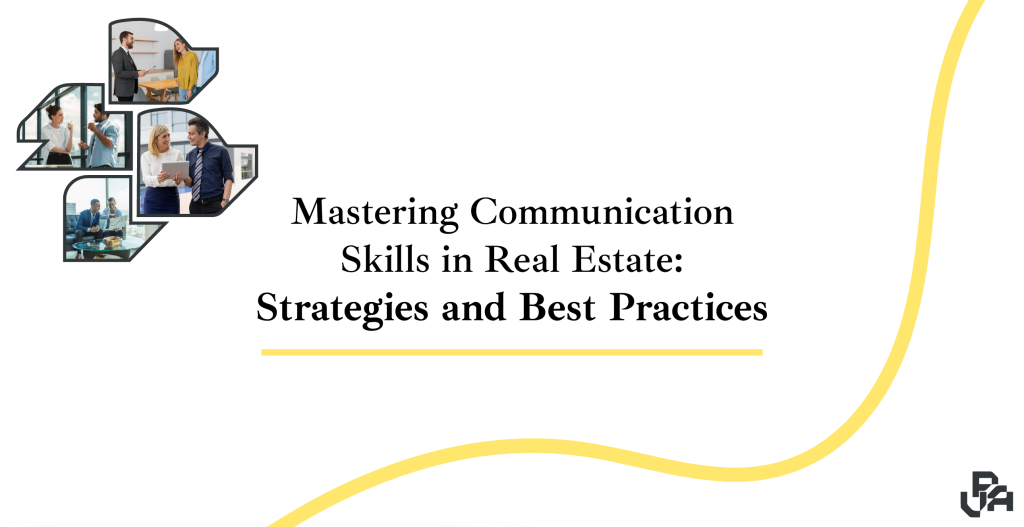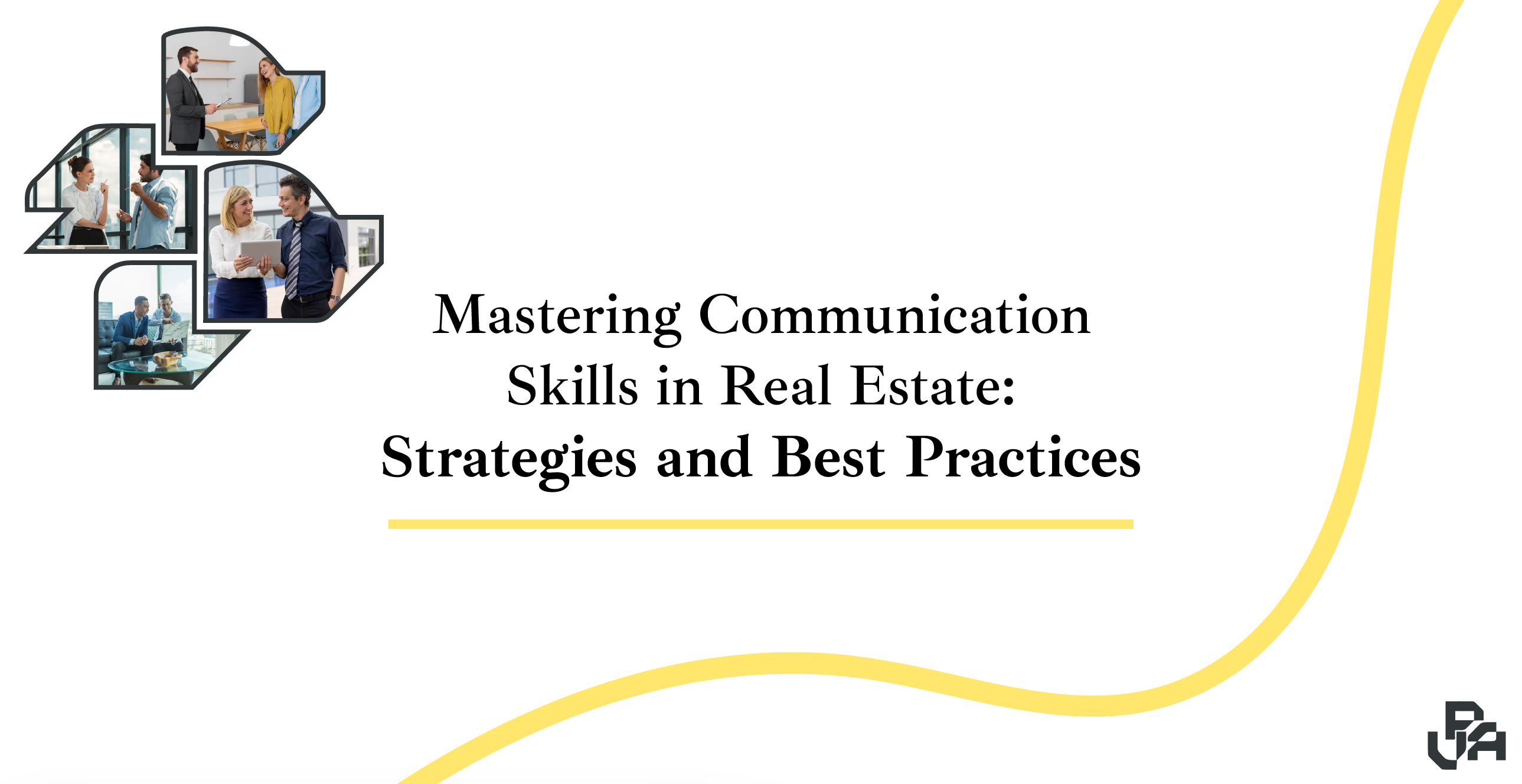Effective communication in real estate is the key behind a successful real estate agent. This highly competitive industry requires the agent to know just how to communicate clearly with the client to establish rapport, credibility, and nail the deal. In this blog, we look at some key communication strategies for real estate brokers.
First thing we are covering is the reasons behind the importance of communication in real estate.
Why Is Communication So Important for Realtors?
In real estate, where every purchase and sale relies on trust, clarity, and timing, effective communication is much more than a mere skill; it is basically indispensable. As lawyers nitpick every word and the market continues to fight its way up the hill, real estate agents need now, more than ever, to communicate effectively. Here’s why communication in real estate is so important:
Building Trust
Transparency and honesty form the very keystone in the process of trust-building with the clients. It would, therefore, be prudent if clear communication helps the real estate professionals regain credibility in light of recent legal challenges and negative media coverage and maintain this relationship with their clients.

Adapting to Change
The field of real estate continuously goes through growing pains; the best way to navigate any such change is with good communication. Open communication will help agents walk their clients and teams through uncertain times and avoid misconceptions for smoother transactions.
Empowering Decisions
Effective communication in real estate empowers your clients and team members with the ability to make more enlightened decisions. The more informed a client is about a pending transaction, the easier it will be for them to make the right decision, whether that means buying, selling, or investing.
Additionally, communication does the following in real estate, among other things:
Explaining Difficult Concepts
Real estate involves contracts, legalese, and technical details, which may be overwhelming to clients. How you explain hard concepts intelligibly is important in ensuring that clients understand their options and have confidence in the decisions they make.
Being Fully Observant
Proper communication involves listening and speaking. It is good to understand any special needs, interests and concerns your clients have and try to provide them with the right advice and assistance. Secondly, it also makes sure that no time is wasted in dealings with the display of the wrong kind of characteristics or failure to include pertinent details in a contract.
Working Together Effectively
Real estate communications don’t just take place between agents, brokers, and teams; they also involve clients. In fact, good internal communication lays the ground for seamless operations without friction. Whenever brokers and agents are articulate, they can provide good service to their clients, iron out any issues more quickly, and establish a successful business environment.
At last, communication is the backbone of every successful transaction and relationship in real estate-from building trust to explaining intricacies in the market or even to colleagues. The mastery of this skill will be the major differentiator that will set you apart and drive long-term success in this competitive industry.
Now, let’s jump into the practical steps and explore how to implement this in a smart and efficient manner.
Effective Communication Strategies for Real Estate
To effectively apply communication skills as a real estate agent, consider the following practices:
Active Listening
One of the most important communication techniques for the estate broker involves active listening. This means that the speaker should have all of your attention, and you show acknowledgment of their utterances and respond appropriately.
The importance of active listening will be in creating rapport with the clients and knowing their needs and preferences. In meetings, listen to what the clients have to say, take notes if necessary, paraphrase their main points to confirm understanding, and reassure them of interest in what they are talking about.
Speak Clearly but Briefly
Real estate agents often deal in so much technical jargon that sometimes clients may not understand. Use simple, plain language to put over your points. If you are not sure your client understands particular technical terms, avoid using them.
Break down convoluted concepts and explain the processes involved in buying or selling a property. Make sure the clients understand the terms and conditions of all contracts, along with their legal obligations.
Visual Aids
At times, these can even help clarify for clients a great deal of information. Graphs, charts, and diagrams depict data and trends like market conditions and property value.
Photos are fantastic to show homes and indicate features; likewise, videos. Also, provide brochures or fliers that summarize the key property details or buying or selling process.
Break the Ice
The first thing one needs to do to communicate effectively is to break the ice with the client. In breaking the ice, a connection should be created; the atmosphere should be friendly and comfortable.
This will make it easier for the clients to open up about what they want and like. Be approachable, friendly, and personable. Participate in casual talks in finding common points that can be a way to get to know each other, and show genuine interest in the requirements of the client.
Be Responsive
Real estate brokers should be responsive to whatever the client needs and inquires about. The client would want information about a property or updates regarding a purchase or sale on time.
They will respond as soon as possible with the latest information provided transparently. Try your best to be available to answer questions. And guide your client through each step so that they feel informed and taken care of.
Leverage technology
Technology, forms the backbone of communication. WhatsApp and Messenger are among the messaging apps used for simple interactions that find wide acceptance among clients. Knowing these will help you get more out of your communication. You may have to juggle several messaging apps.
Using an omnichannel messaging solution like Convrse, which keeps all your messages in one single place, features automation, and simply pipes down communication between multiple platforms, is a good tryout.
Be Transparent and Honest
Choose to be open about all the details regarding a property and any potential hitches that might arise in the transaction. And trust that when you clearly explain the buying or selling process, including how much your fees and charges are, it will come back to you with better results than tweaking the truth.
Transparency will enable the clients to make informed decisions. Therefore, maintain a trustworthy relationship.
Follow-Up
Regular follow-up is essential to sustain relationships and ensure that the clients are comfortable. Get feedback after viewings; if there are questions, make sure you answer them.
Do a post-sale follow-up to confirm that the client is comfortable with everything and address what issues may remain. By following up, you also keep your clients informed of the newest properties, and the shifting real estate market trends, and keep yourself fresh for whatever future transaction may happen.

As much as the past strategies are really effective, myVPA complements the past ones with the three following practices.
Three Practical Practices for Real Estate Leaders
Focused Engagement
This is the bedrock of leadership through engagement, whereby one has to be thoroughly engaged with regard to understanding and responding to what is said and then retaining it. In essence, this constitutes basic enactment in effective communication. Harvard Business Review provides insightful understandings of how active listening may provide a profile of leadership.
Principle of Straight to The Point Messaging
Living in a fast-paced world, clarity, and brevity are key. Whether it be to your team or to your clients, make sure your messages are clear and straight to the point.
Forbes gives very useful advice as to how to create clear and effective messages.
Implement The Feedback Culture
Facilitate a feedback-based culture within your team. The communication herein is two-way; hence, learning and improvement continue unabated. McKinsey & Company takes a closer look at what feedback mechanisms do in organizational growth with their enlightening article.
For you to complement your efforts to build a great communication in real estate, read the following tips about your attitudes. It will not only increase your chance to communicate better but to gain higher trust as well.
Attitudinal Tips to Improve Your Communication in the Real Estate Industry
1. Refine Your Style to Impress Clients
Good communication in real estate starts with your appearance. First impressions mean everything, and long before you utter a word, how you present yourself will say it all. Do not wear casual or distracting attire; most clients will judge your professionalism based on your appearance.
A polished look enhances your communication through building trust and credibility. In turn, this makes things much easier for clients to focus on your message. Of course, personal style has much merit, but never forget to be professional. It ensures your communication gets across in each encounter.

2. Engage Clients Using the FORM Method
If you’re finding it difficult to initiate conversations, the FORM method is a handy means for property managers and salespeople to have interesting conversations.
People love to talk about themselves, so just use it to your advantage. Here’s how you can keep it going:
Family/Friends
Talk to them about their family and friends.
Occupation
Ask about their work and career.
Recreation
Talk about hobbies and interests.
Motivation
Their motivations and dreams.
These are the essentials on which you should place your focus, enabling you to draw closer and talk more confidentially.
3. Listen, Listen, Listen.
We have briefly addressed active listening, but of course, it goes without saying that a lot of the time it is one of the basic building blocks of great communication. So often, agents get off on subjects that have nothing to do with what the client is interested in hearing about the heavy workloads or overwhelm them with industry jargon that speaks nothing to their particular questions.
To build good relationships, it is very important that one be logical, clear, and listen attentively. For each of the client’s questions and concerns, stop, listen, and respond, then attempt to close. Closure too quickly pulled is like pulling a roast from the oven too soon.
Make a conscious effort to pronounce the client’s name correctly as a sign of respect and personal attention. Turn your phone off simply because it shows the client that they are receiving all your attention.
Communication is more than speaking; it is genuinely connecting and understanding the client in their needs. The means of building trust are by acknowledging their desires and showing them you care about their time and concerns.
4. Responding to Client Inquiries with Sincerity and Integrity
Honesty is the number one way to create loyal customers. Always answer truthfully, and base your answers on real facts, avoiding buzzwords, acronyms, and scripted answers.
Your job is to find out what they’re really asking and to honestly answer those questions while you learn from every contact. Graceful handling of objections and surprise interruptions is key to trusting the process.
Trust yourself, and let the substance of your words flow in a clear and trustworthy manner. This will get you more listings and solidify relationships with your clients.
How about being interested in getting the listing, rather than actually getting it?
5. Use Body Language
For a positive affiliation and to help build trust, there are a few things not to do and some things to do:
Do not cross arms or turn your back; it can give a negative impression.
Always take off your shoes when going into a client’s home or at least offer to do so. Just like when you think to where you park; do not block driveways or parking on lawns. Use mirroring technique to establish rapport by slightly mimicking the client’s posture and orientation of their body. Observe for all the cues in body language that signal interest in what you have to say.
If a client leans forward when discussing a proposal, for example, that is a sign of interest, in which mirroring could be done. Replace nervous energy with focus presence and attending. Often we do these things instinctively, but being aware of each can positively impact your communication.
And while attitude is important, adding the right technique will perfect the whole communication in real estate outcome.
Techniques for Real Estate Agents to Perfect Communication
Today, to be a successful real estate agent, it takes more than a license and rapid access to properties; instead, it takes honing critical skills, especially in communication. Here’s a breakdown of how to work through the current market today with organized techniques:
First Technique: Reframing Client Perception
Buyers and sellers could dream about how fast houses were selling a few years ago, and how low interest rates could go. But today offers new opportunities. As much as prices have shot up, it has also given buyers the chance to negotiate their prices and conduct proper inspections without necessarily diving into some frenzy in bid wars as was seen in previous years.
Owning a home still comes with its advantages. Unlike renting, when you own your home you have flexibility and possible long-term gains like refinancing or renting out the property.
For those who are more resistant to selling, and who currently have a low-rate mortgage, it’s about understanding their motivation for selling, whether it is downsizing, family changes, or lifestyle needs. Real estate agents should stress how these needs are more imperative than any concern about interest rates.
Second Technique: Building Rapport and NLP
Building Rapport is considered the core of persuasion to engage clients to take action. Techniques like (Neuro-Linguistic Programming (NLP)) teach how to understand subjective behaviors better.
In the context of real estate, this means gaining the confidence of the client to advance them toward a decision. Read more about NLP here.
Rapport-Building Tips include:
1. Mirroring and keyword backtracking
Subtly imitate the body language of your client, along with speech patterns that will establish a connection.
2. Never say, “You’re wrong.”
Instead use a softening rephrase such as “Close, but actually…” to maintain rapport.
3. Do ask discovery questions
Gain permission to ask challenging questions by first having a conversation that outlines the client’s needs, motivations, and goals. This will build trust and enhance their relationship with you.
Third Technique: Coaching Support
Personalized coaching goes a long way for those who want to fine-tune their communication and follow-up techniques. They can help you perfect your scripts, tone, and overall engagement with clients.
Building relationships and communicating with your clients is one of the major differentiators that will continue to set you apart from others today and give you long-lasting success.
The application of these techniques varies depending on whether you’re working with clients, industry professionals, or brokers.
Best Ways to Deal with Clients, Industry Professionals, and Brokers
Below we will leave some tips about what aspect to focus on when dealing with each party.
Clients
Confidence can be instilled in clients by involving them in clear communication and listening to what they say.
When you understand the requirements of clients, make them aware of the market, and accordingly offer them customized solutions.
Regular follow-up and making them feel special during the buying and selling process are a must to communicate well with clients.
Industry Professionals
Build strong relationships through networking and sharing knowledge. Don’t forget to be professional, respectful of their experience, and collaborate on shared interests. Your reputation for being reliable and trustworthy will forge long-term relationships.
Brokers
Establish open communication, and clear expectations on both sides. Respect their experience; at the same time, show your expertise. Keep a cooperating attitude and take the initiative when problems appear to have smooth transactions and maintain a good working relationship.
Check out the tools below to help streamline and simplify the communication process in real estate.
Communication Tools to Ease The process
CRM Software: Salesforce and HubSpot
These softwares can empower agents to maintain consistent communication with clients. They track leads, and set reminders to ensure timely follow-ups with prospects.
Email Automation: Mailchimp and ActiveCampaign
These applications allow real estate agents to create targeted email campaigns. They can keep clients informed about new listings, market trends, and tailored offers.
Video Conferencing: Zoom and Google Meet
These enable agents to conduct property tours and meetings with clients and brokers. Which eliminates the need for in-person appointments.
Instant Messaging Apps: WhatsApp and Slack
These can provide real-time communication for seamless interactions with clients, brokers, and team members, ensuring quick responses on the go.
Digital Document Management: DocuSign and Dotloop
These are more for contract signing and document sharing simple and secure, preventing delays and ensuring a smooth, legally compliant process.

Together, these tools enhance communication, boost productivity, and create a seamless real estate experience for all parties involved. If you would like to know more about some of these tools, feel free to check the tools section in our previous blog: The Art of Consistent Follow-Up in Real Estate for Maximum Sales.
If you’re looking for assistance in applying these communication tips effectively in real estate, continue reading to discover how utilizing a virtual assistant can boost your business’s success.
Essential Steps to Successfully Hire and Manage a Real Estate Virtual Assistant
1. Clearly State What You Need
Decide what you want to outsource before you engage a virtual assistant. You might be able to locate a virtual assistant with the necessary experience in this method.
2. Select the Appropriate VA
Aim to hire virtual assistants with a background in real estate. And a plus can be strong marketing maintenance skills. And conduct interviews to be sure they will fulfill your requirements.
3. Clearly State Expectations
Set the objectives from the beginning. Agree on the due dates, and rules for communication. Add some activity-tracking project management tools to assist people hold themselves accountable.
4. Resources and Training
It might take training to bring even the most seasoned VAs up to speed with your systems and processes, but it might pay off as well. Give them the tools and encouragement they need to succeed in their roles.
5. Keep in Contact

Use email, chat apps, and video conversations to stay in touch and resolve problems as soon as possible.
After you follow the above steps and take all your measures before choosing the right virtual assistant for your real estate business you should be aware of how this virtual assistant can help you achieve great results in terms of communication.
4 Ways a Real Estate Virtual Assistant Enhances Your Business Through Effective Communication
Being a busy real estate professional juggling many tasks can be overwhelming. There simply aren’t enough hours in the day to tackle everything on your plate. What if you could offload those crucial but routine tasks off to someone else, freeing you up to focus on growing your business and driving success?
Here’s what a Client Communication and Scheduling Virtual Assistant for real estate can make easier for you:
1. Administrative Tasks
A virtual assistant, specializing in real estate, will manage day-to-day behind-the-scenes activities that keep your business running smoothly. They are capable of:
- Scheduling meetings, showings, and appointments
- Organizing all vital documents and information, like client information, property listings, and contracts
- Sending invitations and reminders for keeping one updated on where and when meetings and events are going to take place
- Answering all client and partner inquiries via email and phone
- Making reservations for a venue or a travel accommodation.
- Tools and software setup to get everything going right.
- List management of clients and prospects and their corresponding contact details.
- Minutes of meetings and showings.
2. Listing Management
Correct and attractive listings mean the difference between attracting buyers or not. Below are some of the things a seasoned VA can do in this regard:
- Scrape all the vital information about the properties: size, features, location, among others.
- Compose creative descriptions showcasing what exactly makes each property special and unique.
- Organizing and preparing photos for clear views of the property for potential buyers.
- Maintaining current property information in an accessible location.
- Fielding any questions from prospective buyers.
- Ensuring that all information about the property remains in order.
3. Communication with Clients
Your VA can enhance the client experience by:
- Addressing inquiries related to properties or the process of buying and selling.
- Informs clients of dates, appointments, and activities.
- Leading the clients through the real estate experience and helping them stay on track.
- Giving insight into neighborhoods, schools, and local amenities.
- Booking open house viewings and showing appointments
- Helping with paperwork and checking that everything is ready and correct.
4. Database Management
Think of a database as a virtual, highly organized filing cabinet. A real estate Virtual Assistant is able to assist with:
- Gathering and inputting information into your database about properties, clients, and more.
- Design an accessible electronic system for ease of access and information storage.
- Adding new data to the database, updating of information, and accuracy checking.
- Preparation of various reports or lists to your clients or partners as requested.
- Database security and backup.
In short, why stress over a lot of tasks when a VA can just take them off your plate? If you are seriously taking your real estate business to the next level,consider hiring a virtual assistant even if it is for a season or a trial period.
And finally, remember to:
Focus on What Matters
By the time you are through reading this blog, you should now know how to intelligently concentrate your efforts in terms of communication in real estate. Mastery of communication quite simply is the key to success in today’s business of real estate.
Reframing client perceptions, establishing rapport, and using current technology are some of the techniques which will help all real estate professionals communicate not only with current and future clients but also with other peers and brokers.
This will not only make your operations smooth with effective communication strategies and a virtual assistant for routine tasks but will also let you catch up on what really matters: growing your business and relationships that last. Welcome these practices into your real estate career and watch your career flower with more ease and success.




